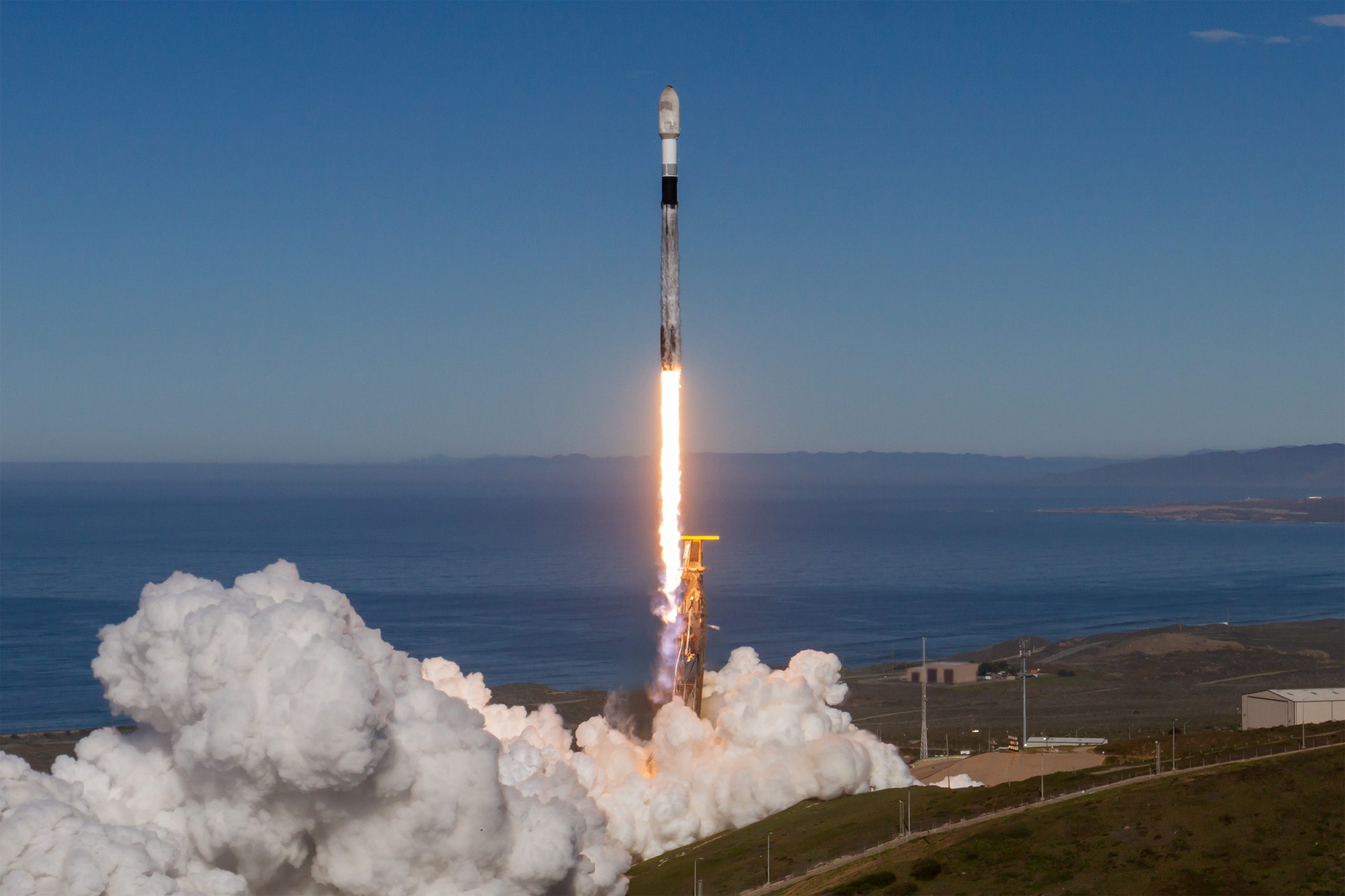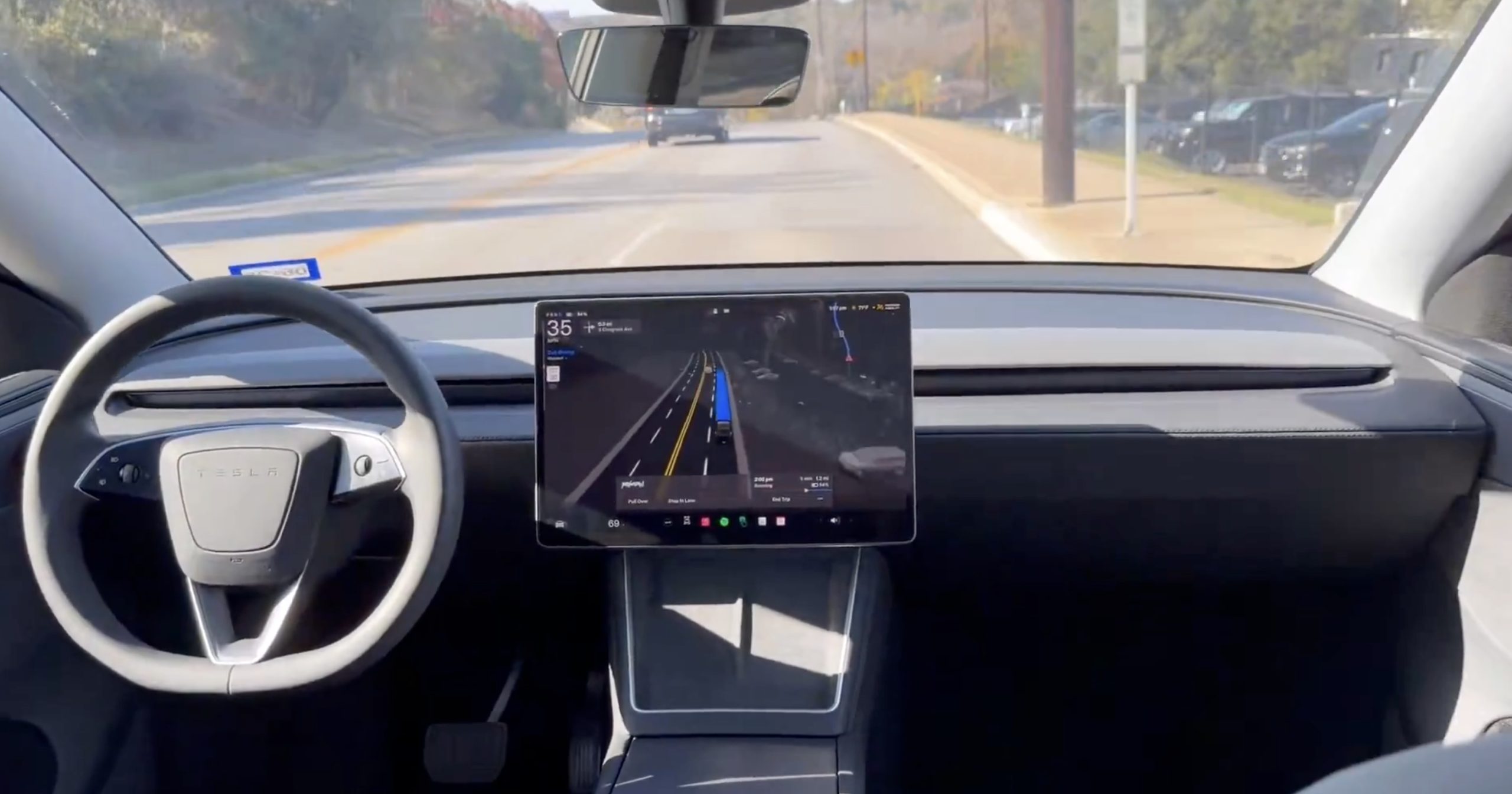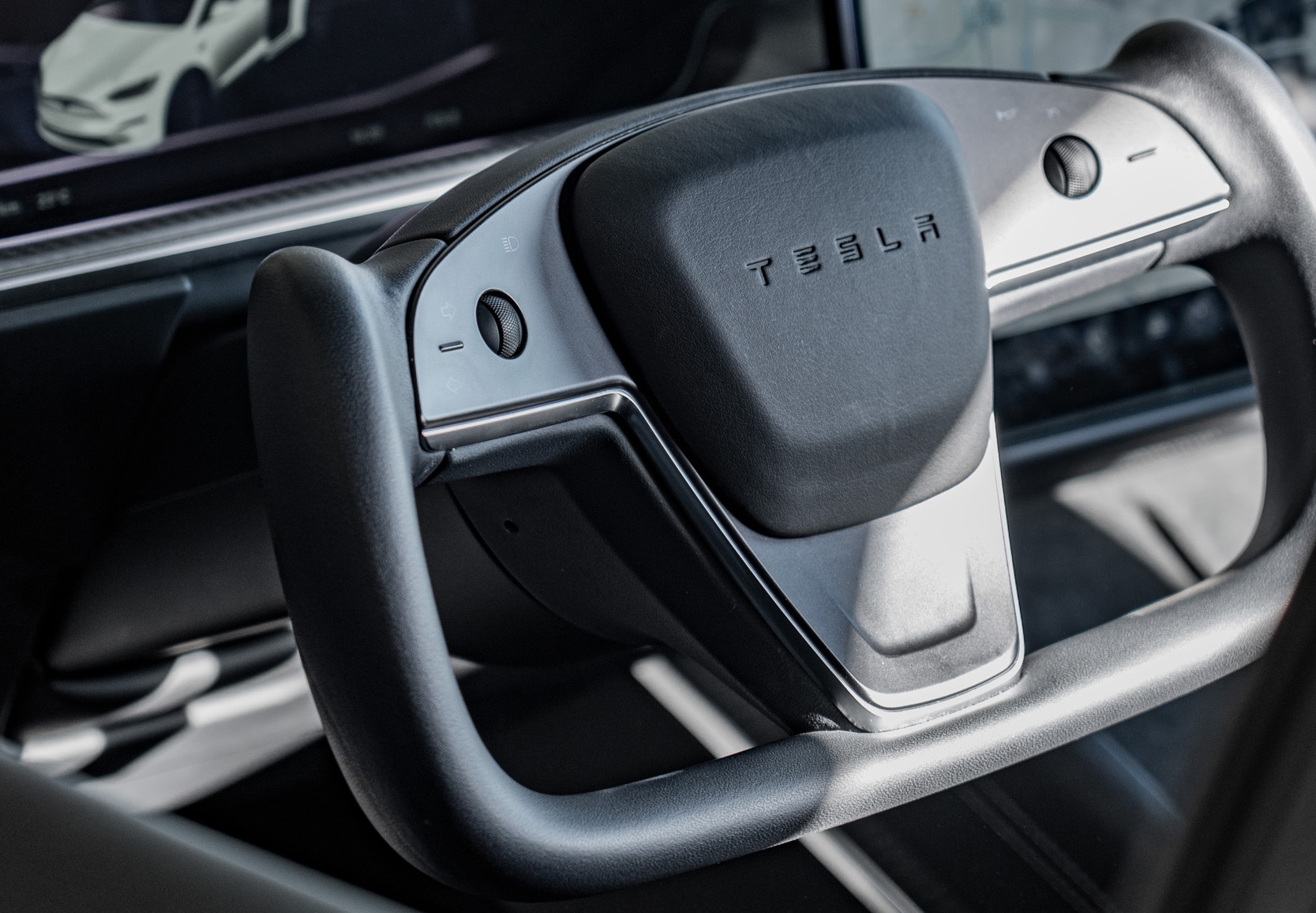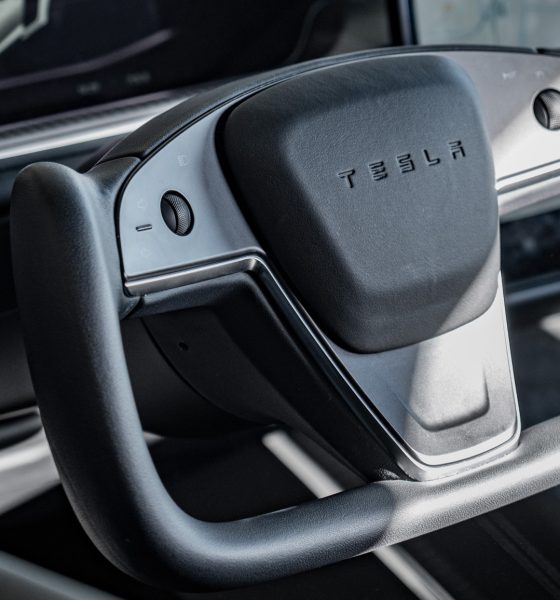A former Tesla executive has seemingly confirmed the claims that were outlined in a report from The Wall Street Journal (WSJ), which provided some context behind the rift between Tesla and the Joe Biden administration. As per the report, Tesla officials attempted to forge close ties with the Biden administration multiple times after the president’s inauguration, but they were rejected.
Tesla was a dominant force in the United States electric vehicle sector in early 2021 when the Biden administration was making plans to boost electric cars in the country. But while Tesla produced about two-thirds of EVs on US roads then, the company’s workforce was also not unionized. Thus, despite Tesla’s efforts to reach out to the Biden administration in an effort to connect Musk to the US President, the company reportedly received the cold shoulder.
Citing people reportedly familiar with the matter, The Wall Street Journal noted that “Biden officials didn’t want to anger the powerful United Auto Workers union, which leaned on the White House to keep its distance from Musk.” The WSJ report also cited a former official from the UAW, who noted that “We made it clear to the administration about where things were” and that “we didn’t have to make an ultimatum. They understood.”
It was reportedly these factors that led to Tesla being snubbed by the Biden administration in its EV summit and US President Joe Biden crediting GM CEO Mary Barra for leading and electrifying “the entire automobile industry.” Musk, together with Tesla’s leaders, were reportedly outraged by the US President’s comments, especially since in the fourth quarter of 2021, when Biden credited the GM CEO for being an EV leader, Tesla delivered over 115,000 electric cars in the United States, while General Motors produced just 26 EVs.
This is a rare article about Tesla/Elon, where I can’t find any factual errors and it has good context.— Rohan Patel (@rohanspatel) July 28, 2024
In comments on X, former Tesla Vice President of Global Public Policy and Business Development Rohan Patel confirmed that The Wall Street Journal’s report was accurate. In his post, Patel noted that “This is a rare article about Tesla/Elon, where I can’t find any factual errors and it has good context.”
Elon Musk’s notable shift from being a supporter of the Biden administration into one of the US President’s critics is unfortunate, but a look at the CEO’s comments over the years does show that his disdain did not come out of nowhere. In January 2021, just a few months after Biden was elected as the US President, Musk told Fortune in a lengthy phone call that he was delighted about Biden’s presidential win.
“I’m super fired up that the new administration is focused on climate. I think this is great. I feel very optimistic about the future of sustainable energy with the new administration. Not that we should get complacent or anything, but the wind is at our back for solving the climate crisis with the new administration,” Musk said at the time.
Just a few weeks after that, Musk noted in an appearance at the Joe Rogan Experience podcast that he had talked to the Biden administration about the prospect of adopting a carbon tax. The Biden administration believed that a carbon tax would be too politically difficult, Musk claimed.
“I talked to the Biden administration, and they were like ‘Well, this seems too politically difficult.’ And I was like, ‘Well, this is obviously a thing that should happen.’ And by the way, SpaceX would be paying a carbon tax too. So I’m like, you know, I think we should pay it too. It’s not like we shouldn’t have carbon generating things. It’s just that there’s got to be a price on this stuff,” Musk said.
By September 2021, Musk admitted in an interview at the 2021 Code Conference that the Biden administration is “not the friendliest administration,” and “maybe a little biased.” He also noted that the Biden government “seems to be controlled by unions.” At this time, Tesla had already been snubbed at the White House EV summit, and Musk had started posting jokes about Biden “sleeping.” This was highlighted when Musk joked about Biden being asleep after the US President completely ignored SpaceX’s Inspiration4 mission, a private, All-American spaceflight trip with the first-ever all-civilian crew that raised over $200 million for St. Jude Children’s Research Hospital.
Don’t hesitate to contact us with news tips. Just send a message to simon@teslarati.com to give us a heads up.

Cybertruck
Tesla analyst claims another vehicle, not Model S and X, should be discontinued

Tesla analyst Gary Black of The Future Fund claims that the company is making a big mistake getting rid of the Model S and Model X. Instead, he believes another vehicle within the company’s lineup should be discontinued: the Cybertruck.
Black divested The Future Fund from all Tesla holdings last year, but he still covers the stock as an analyst as it falls in the technology and autonomy sectors, which he covers.
In a new comment on Thursday, Black said the Cybertruck should be the vehicle Tesla gets rid of due to the negatives it has drawn to the company.
The Cybertruck is also selling in an underwhelming fashion considering the production capacity Tesla has set aside for it. It’s worth noting it is still the best-selling electric pickup on the market, and it has outlasted other EV truck projects as other manufacturers are receding their efforts.
Black said:
“IMHO it’s a mistake to keep Tesla Cybertruck which has negative brand equity and sold 10,000 units last year, and discontinue S/X which have strong repeat brand loyalty and together sold 30K units and are highly profitable. Why not discontinue CT and covert S/X to be fully autonomous?”
IMHO it’s a mistake to keep $TSLA Cybertruck which has negative brand equity and sold 10,000 units last year, and discontinue S/X which have strong repeat brand loyalty and together sold 30K units and are highly profitable. Why not discontinue CT and covert S/X to be fully…
— Gary Black (@garyblack00) January 29, 2026
On Wednesday, CEO Elon Musk confirmed that Tesla planned to transition Model S and Model X production lines at the Fremont Factory to handle manufacturing efforts of the Optimus Gen 3 robot.
Musk said that it was time to wind down the S and X programs “with an honorable discharge,” also noting that the two cars are not major contributors to Tesla’s mission any longer, as its automotive division is more focused on autonomy, which will be handled by Model 3, Model Y, and Cybercab.
Tesla begins Cybertruck deliveries in a new region for the first time
The news has drawn conflicting perspectives, with many Tesla fans upset about the decision, especially as it ends the production of the largest car in the company’s lineup. Tesla’s focus is on smaller ride-sharing vehicles, especially as the vast majority of rides consist of two or fewer passengers.
The S and X do not fit in these plans.
Nevertheless, the Cybertruck fits in Tesla’s future plans. Musk said the pickup will be needed for the transportation of local goods. Musk also said Cybertruck would be transitioned to an autonomous line.
Elon Musk
SpaceX reportedly discussing merger with xAI ahead of blockbuster IPO

In a groundbreaking new report from Reuters, SpaceX is reportedly discussing merger possibilities with xAI ahead of the space exploration company’s plans to IPO later this year, in what would be a blockbuster move.
The outlet said it would combine rockets and Starlink satellites, as well as the X social media platform and AI project Grok under one roof. The report cites “a person briefed on the matter and two recent company filings seen by Reuters.”
Musk, nor SpaceX or xAI, have commented on the report, so, as of now, it is unconfirmed.
With that being said, the proposed merger would bring shares of xAI in exchange for shares of SpaceX. Both companies were registered in Nevada to expedite the transaction, according to the report.
On January 21, both entities were registered in Nevada. The report continues:
“One of them, a limited liability company, lists SpaceX and Bret Johnsen, the company’s chief financial officer, as managing members, while the other lists Johnsen as the company’s only officer, the filings show.”
The source also stated that some xAI executives could be given the option to receive cash in lieu of SpaceX stock. No agreement has been reached, nothing has been signed, and the timing and structure, as well as other important details, have not been finalized.
SpaceX is valued at $800 billion and is the most valuable privately held company, while xAI is valued at $230 billion as of November. SpaceX could be going public later this year, as Musk has said as recently as December that the company would offer its stock publicly.
The plans could help move along plans for large-scale data centers in space, something Musk has discussed on several occasions over the past few months.
At the World Economic Forum last week, Musk said:
“It’s a no-brainer for building solar-powered AI data centers in space, because as I mentioned, it’s also very cold in space. The net effect is that the lowest cost place to put AI will be space and that will be true within two to three years, three at the latest.”
He also said on X that “the most important thing in the next 3-4 years is data centers in space.”
If the report is true and the two companies end up coming together, it would not be the first time Musk’s companies have ended up coming together. He used Tesla stock to purchase SolarCity back in 2016. Last year, X became part of xAI in a share swap.
Elon Musk
Tesla hits major milestone with Full Self-Driving subscriptions

Tesla has announced it has hit a major milestone with Full Self-Driving subscriptions, shortly after it said it would exclusively offer the suite without the option to purchase it outright.
Tesla announced on Wednesday during its Q4 Earnings Call for 2025 that it had officially eclipsed the one million subscription mark for its Full Self-Driving suite. This represented a 38 percent increase year-over-year.
This is up from the roughly 800,000 active subscriptions it reported last year. The company has seen significant increases in FSD adoption over the past few years, as in 2021, it reported just 400,000. In 2022, it was up to 500,000 and, one year later, it had eclipsed 600,000.
NEWS: For the first time, Tesla has revealed how many people are subscribed or have purchased FSD (Supervised).
Active FSD Subscriptions:
• 2025: 1.1 million
• 2024: 800K
• 2023: 600K
• 2022: 500K
• 2021: 400K pic.twitter.com/KVtnyANWcs— Sawyer Merritt (@SawyerMerritt) January 28, 2026
In mid-January, CEO Elon Musk announced that the company would transition away from giving the option to purchase the Full Self-Driving suite outright, opting for the subscription program exclusively.
Musk said on X:
“Tesla will stop selling FSD after Feb 14. FSD will only be available as a monthly subscription thereafter.”
The move intends to streamline the Full Self-Driving purchase option, and gives Tesla more control over its revenue, and closes off the ability to buy it outright for a bargain when Musk has said its value could be close to $100,000 when it reaches full autonomy.
It also caters to Musk’s newest compensation package. One tranche requires Tesla to achieve 10 million active FSD subscriptions, and now that it has reached one million, it is already seeing some growth.
The strategy that Tesla will use to achieve this lofty goal is still under wraps. The most ideal solution would be to offer a less expensive version of the suite, which is not likely considering the company is increasing its capabilities, and it is becoming more robust.
Tesla is shifting FSD to a subscription-only model, confirms Elon Musk
Currently, Tesla’s FSD subscription price is $99 per month, but Musk said this price will increase, which seems counterintuitive to its goal of increasing the take rate. With that being said, it will be interesting to see what Tesla does to navigate growth while offering a robust FSD suite.










